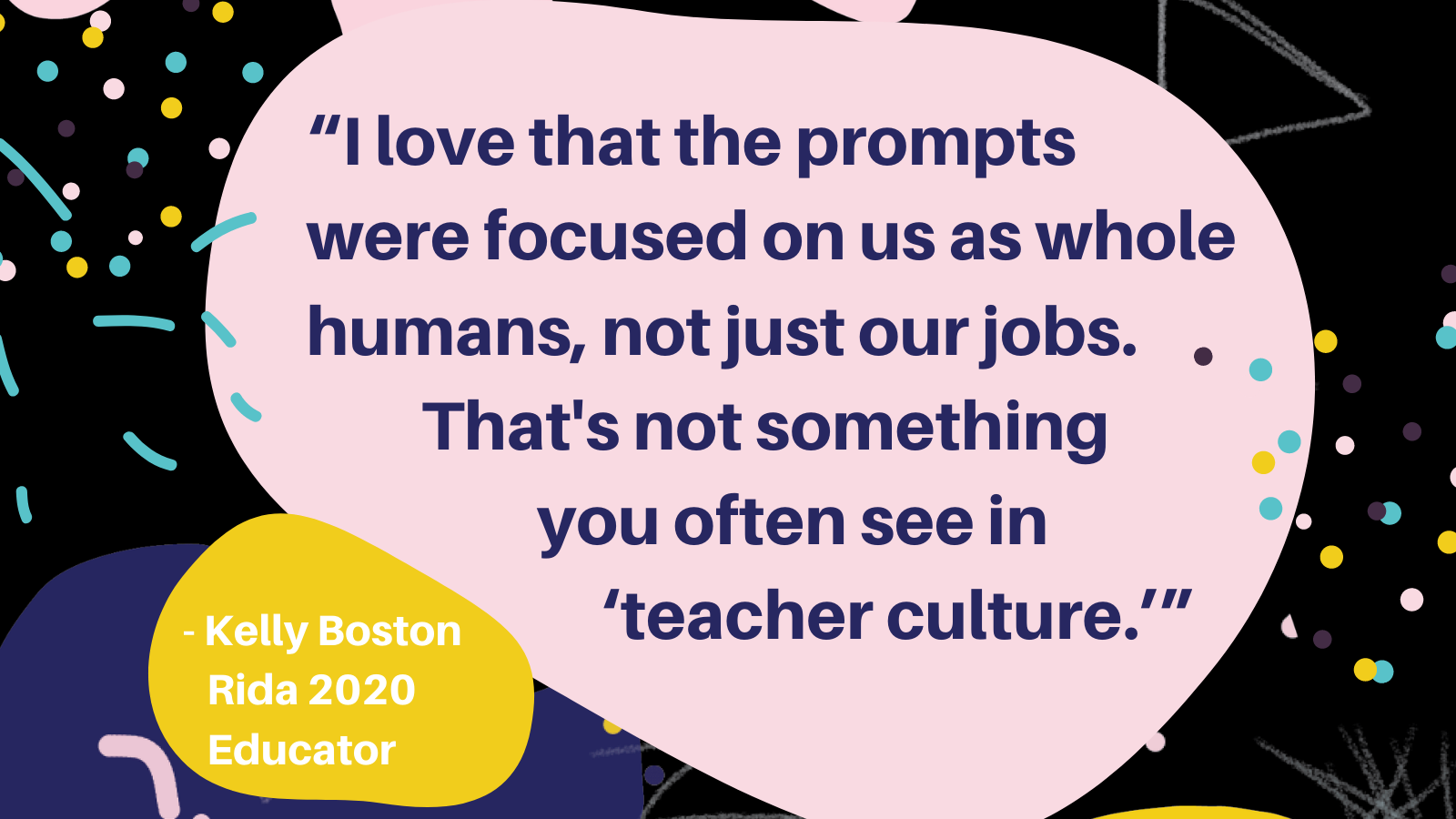It’s Okay to Go Slow:
Reflections from Rida 2020
“Empowering, humanizing, deeply moving, doable in the world of 2020 screen time overload!”
Like so much of 2020, the Rida Institute looked and felt different this year. We carried a theme of community care as we ventured to move Rida online. We gathered 24 educators from Detroit and across the country to create a community of support during an uniquely challenging year. The most notable change while moving online was slowing down and spreading the annual intensive retreat across four weekends in the fall instead of one summer weekend. Over those first four months we cared for each other as we managed the challenging beginning and end of the first semester of school during a pandemic.
Reflections from a Facilitation Fellow:
“As adults we don’t have the luxury to be curious… to stop to ask questions. But real collaboration comes from curiosity ”
Another major change included hosting our first Rida Facilitation Fellow, Kiarra Ambrose who joined us on the Rida 2020 journey. Kiarra is a Rida alum, educator extraordinaire and Math Training and Support Coordinator at Detroit Public Schools Community District (DPSCD). The goal of the fellowship was to support Rida Institute while investing in and growing the skills of the fellow. After Rida ended, Kiarra reflected that she gained a deeper understanding of humanizing facilitation practices including being more intentional about the ‘what’ and ‘why’, asking powerful questions and prioritizing people being present in the space. Her top lessons include:
It’s okay to go slow
Less is more
Let things unfold by holding space
Let people take what they need
She is bringing her lessons into her work at DPSCD when creating training and development opportunities for math teachers. In particular, PIE’s core practices of connection and somatic centering are now routine in her work in the Math Department. The introduction of these techniques have been impactful and well received among her colleagues. Kiarra has seen more engagement and increased participation with the math teachers she supports. She has received positive feedback from participants who have vocalized appreciation for the shift in the learning environment. Since starting to use these practices, participants have built a stronger sense of community allowing them to be more vulnerable to make mistakes, push each other and change their minds. A radically simple shift continues to have a profound impact within her department. See above for Kiarra’s tips on humanizing adult learning spaces.




